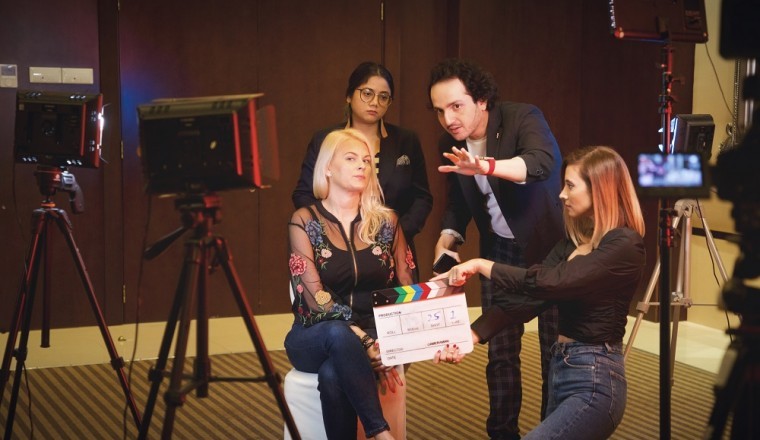
UAE based filmmaker and renowned acting coach Tanveer Ahmed, elaborates on how acting helps you to manage your stress and provides full control over your emotions and anxiety
Dubai, United Arab Emirates, October 14, 2019—(AETOSWire) : Acting has always been seen as a medium to gain popularity, fame, and money and is considered to be an art form reserved only for a few chosen ones with passion and inherent talent in the field. Tanveer Ahmed, Founder-Director of Creative Bites in UAE, throws light on his outlook as to how acting can be used to manage stress and anxiety and can help you gain absolute control over your emotions. Acting can be used as a valuable tool to unclutter your mind, and prepare you to effectively manage your mood swings.
“Visualize a day when you are very upset owing to some fatal event or circumstance at home or workplace, and can’t get it out of your mind. Now, imagine getting a control over your own emotions in such a way that you could replace your emotion of distress with excitement or joy. Acting facilitates you to get that specific control over your mind & emotions”, says Tanveer Ahmed
Tanveer, with a terrific background of acting in theaters, radio platforms, street plays, videos and films since the age of 9, further adds:
“Acting is not about mimicking any other actor or character, it’s mainly about living a particular emotion or event as if that event is really taking place in your life. Actors do not fake an emotion in front of the camera, they are actually required to live the emotions to make it look genuine. As a professional actor, you work upon yourself and learn to trigger a particular emotion at your own command and live that emotion for a brief period to perform the scene. You are trained to switch between emotions effortlessly before facing the camera. Actors look real in front of the camera as they are actually living the emotion and not simply faking it.”
According to him, actors better understand the emotions as they already know that it’s nothing more than just an event that has triggered a particular emotion. Actors are trained to analyze and replicate any of their emotions at their own command and swap two contrasting emotions swiftly. Knowing why you are feeling the way you are feeling, or what has triggered this feeling, gives you the power to control it.
At such a time when you are sad or anxious, you can stimulate the emotion of happiness or optimism at your command by using techniques of acting and shift from the emotion of sadness to emotion of happiness or calmness.
Tanveer maintains that interpreting the working of your emotions and discovering what sparks a specific emotion in you, makes you understand your mood swings in the best possible way.
Salman Habib, an Acting student from Film Acting Course says ,“For me learning acting from Tanveer was a boon, I initially joined the course to discover if I have the potential to act or not, but surprisingly in just the first few sessions I realized that it’s something more extensive and transforming than just learning acting. I have been reshaped into a much more liberated and radiant version of myself with boosted self-control.”
Acting also helps you boost confidence in general and prepares you to communicate your ideas well. With frequent acting performances, one becomes more comfortable in interacting with the audience and is observant of the importance of correct body postures, eye movements, gestures, voice pitch, etc. which grooms your overall personality.
“We have been well received by students from all the different nationalities aspiring to learn the art of acting & filmmaking. Many of our students are also approaching these courses as a personality development tool to learn how to analyze, observe and be able to control their own emotions. The skills of managing your emotions truly liberate you from being a prisoner to your own mind.” concludes Tanveer



















Facebook Conversations
Disqus Conversations